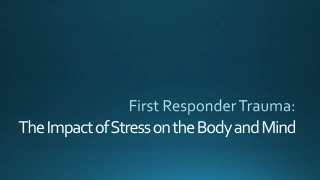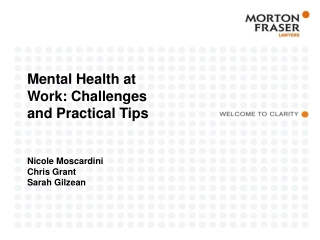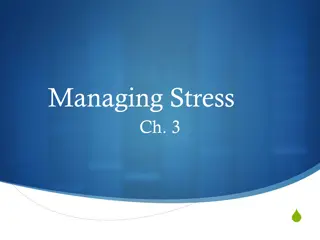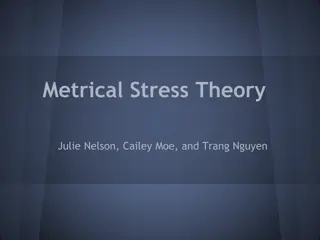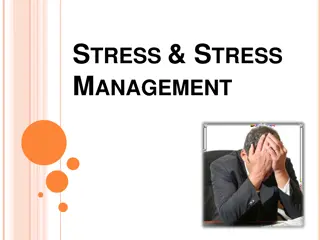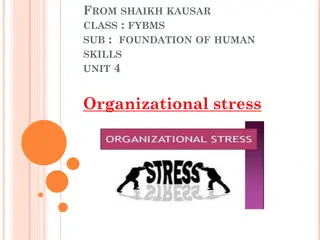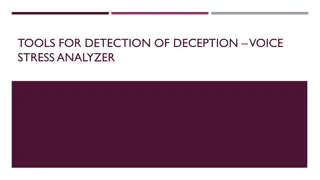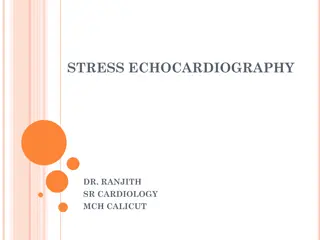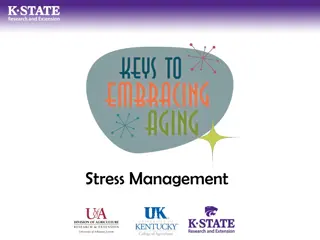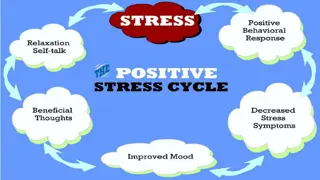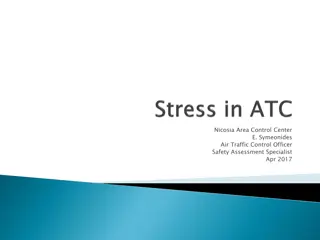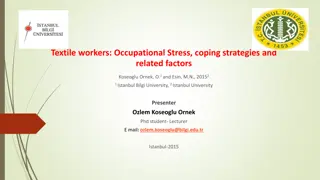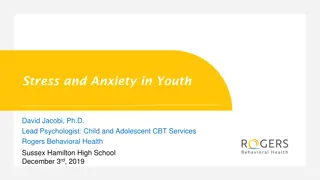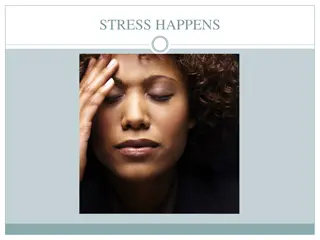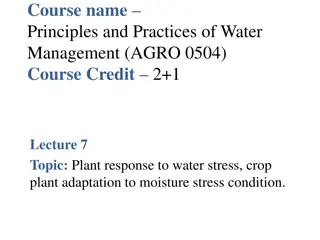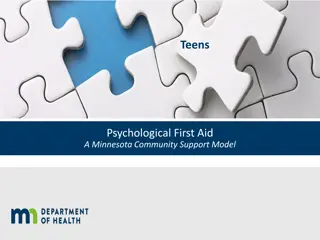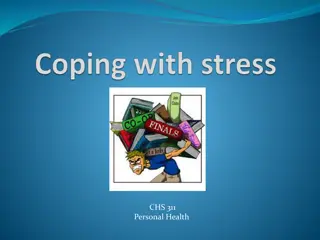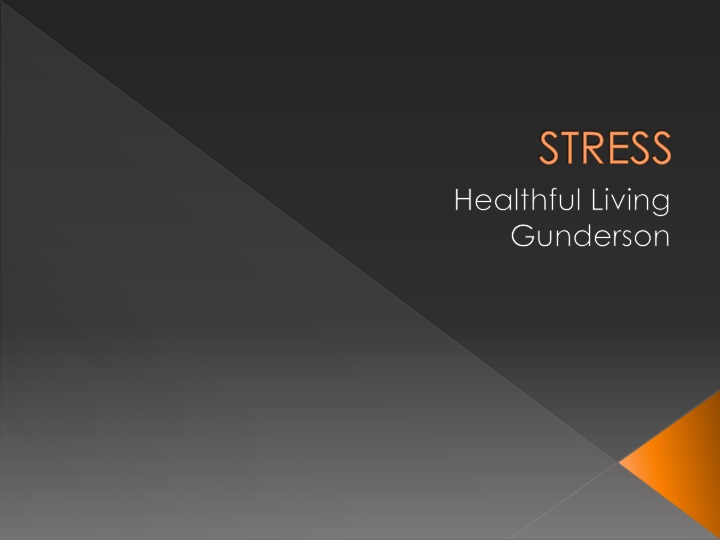
Stress: Causes, Types, and Management Techniques
Explore the concept of stress and its impact on health and wellbeing. Learn about the sources of stress, different types (distress and eustress), ways to deal with stress, and how the body reacts to stress. Discover helpful tips on stress management and take a personality test to assess your stress levels. Empower yourself to lead a healthier and more balanced life by understanding and managing stress effectively.
Download Presentation

Please find below an Image/Link to download the presentation.
The content on the website is provided AS IS for your information and personal use only. It may not be sold, licensed, or shared on other websites without obtaining consent from the author. If you encounter any issues during the download, it is possible that the publisher has removed the file from their server.
You are allowed to download the files provided on this website for personal or commercial use, subject to the condition that they are used lawfully. All files are the property of their respective owners.
The content on the website is provided AS IS for your information and personal use only. It may not be sold, licensed, or shared on other websites without obtaining consent from the author.
E N D
Presentation Transcript
STRESS Healthful Living Gunderson
STRESS . . . What is it? Stress: Any situation real or imagined that causes the body to adjust or change. Stress is perceived: What is stressful for one may not be for another.
4 Sources of stress . . . Where does it come from? Environmental: noise in the background, chaos around you. Mental: our own thoughts; #1 source of stress. OURSELVES. Physiological: proper sleep, exercise and nutrition. Social: parents, friends, peers, teachers.
Two types of stress: Distress: bad negative stress. Examples: feeling guilty. Worrying. Denial. Eustress: good positive stress. Motivates us to work Examples: working out.
3 ways to DEAL with Stress Avoid the stressor Alter our perception Prepare to deal
How the body reacts to stress Alarm: fight or flight response. Adrenaline released into bloodstream. Resistance: body attempts to regain balance. Homeostasis: body continues to maintain internal balance regardless of external. Exhaustion: harmful body changes; decreased resistance to disease and injury. Key is: stress management before reaching the exhaustion stage. GAS General adaptation syndrome: body s response to stress
Personality Test Answer the following 30 questions using 1-5 scale. 1= Does NOT apply to you 2= Seldom applies to you 3= Sometimes applies to you 4= Most of the time applies to you 5= Absolutely applies to you 7
I become angry whenever I have to stand in line for more than 15 minutes. I handle more than one problem at a time. It s hard finding the time to relax and let myself go during the day. I become irritated or annoyed when someone speaks too slowly. I try hard to win at sports and games. When I lose at sports or games, I get angry at myself and/or others. I have trouble doing things for myself. I work much better under pressure or when I have to meet a deadline. I find myself looking at the time when I m sitting around or not active. 10. I bring work home with me . . . And do it. 1. 2. 3. 4. 5. 6. 7. 8. 9.
11. I feel energized and exhilarated after being in a pressure situation. 12. I feel like I need to take charge in order to get things moving. 13. I find myself eating quickly regardless of whether I have time or not. 14. I do things quickly regardless of whether I have time or not. 15. I interrupt what people are saying when I think they are wrong. 16. I m rigid when it comes to changes at work or at home. 17. I become jittery and need to move whenever I m trying to relax. 18. I find myself eating faster than the people I m eating with. 19. At work, I do more than one task at a time in order to feel productive. 20. I take less vacation time than I m entitled to.
21. I find myself being very picky and looking at small details. 22. I become annoyed at people who don t work as hard as I do. 23. I find that there are not enough things to do during the day. 24. I spend a good deal of my time thinking about my work. 25. I get bored very easily. 26. I m active on weekends either working or doing projects. 27. I get into arguments with people who don t think my way. 28. I have trouble rolling with the punches whenever problems arise. 29. I interrupt someone s conversation in order to speed things up. 30. I take everything I do seriously.
Add it Up . . . Minimum scores is 30, maximum 150. How did you score? 100 150 Type A 76 99 Type A/B (characteristics of both) 30 75 Type B If you scored high (more than 90), you need to have outlets for stress management.
What does it mean? Type B: Easy going Trusting Center of attention Important to be liked by others Good listeners Type A: Leaders Enjoy change Fear routine Highly competitive Close minded Less patience Your scores are going to give you A, B, or C personality. This assessment gives 3 main personalities instead of simply 2. If your results say you are a type B, this means you have characteristics of BOTH personality types.
Assignment: What were your results? Do you agree or disagree with the results? Explain What information did you learn from taking the test? What changes can you implement into your own life? http://psychologytod ay.psychtests.com/ya hoo/anxiety/type_a_r _access.html Take the following test in a one page, 12 pt. font (times new roman) double spaced document answer the following questions: 13

